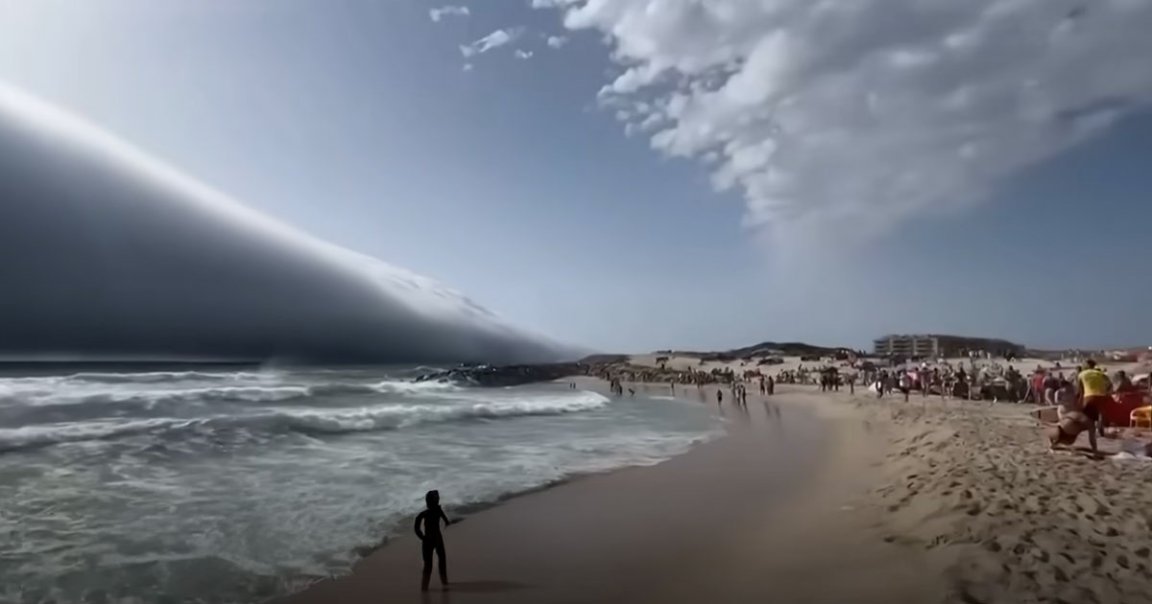
Cloud Nein
A viral video making the rounds on social media shows beachgoers in Portugal encountering an enormous and unnervingly tsunami-like cloud rolling in.
Footage shows an enormous, foreboding wall of dark clouds rapidly approaching a lush beach. It was frightening enough for plenty of beachgoers to pack up their belongings and seek shelter away from the waterfront.
The wave, called a “roll cloud,” appears when cold air comes in contact with high temperatures. Portugal, along with the rest of Europe, is suffering from a rare and deadly heatwave, hot enough to force Paris to close the summit of the Eiffel Tower.
The cloud, an exceedingly rare meteorological phenomenon that’s more common in Australia, must’ve been an incredible sight to behold.
“These clouds are spectacular,” Imperial College London climate scientist Paulo Ceppi told the Washington Post. “They look massive, like it goes on forever, but they look scarier than they really are.”

Wave Riders
Roll clouds can stretch to lengths of hundreds of miles, and tend to appear when there’s not enough moisture in the air to trigger a rain or thunderstorm.
Parts of Portugal are in the grips of the heat wave, with temperatures spiking to a record 116 degrees Fahrenheit in the center of the country. Ceppi told WaPo that the heat wave “contributed to the perfect conditions” for the ominous, tsunami-like clouds.
However, roll clouds don’t survive once they hit land and appear in the sky as a wave “that’s stopped, always breaking on the same spot,” as PlanoClima climatologist Mário Marques told the Associated Press.
“It is beautiful to watch,” he added. “It’s just like, for those who like race cars, the equivalent of driving a Ferrari.”
Unsurprisingly, given the steady rise in temperatures worldwide caused by climate change, Ceppi told the WaPo that roll clouds will become an increasingly common fixture.
At least, unlike plenty of other side effects of global warming, the spectacular weather phenomenon is entirely harmless in and of itself.
“There are more worrying things about climate change,” Ceppi said.
More on clouds: Microplastics Are Infesting Clouds, Affecting Weather